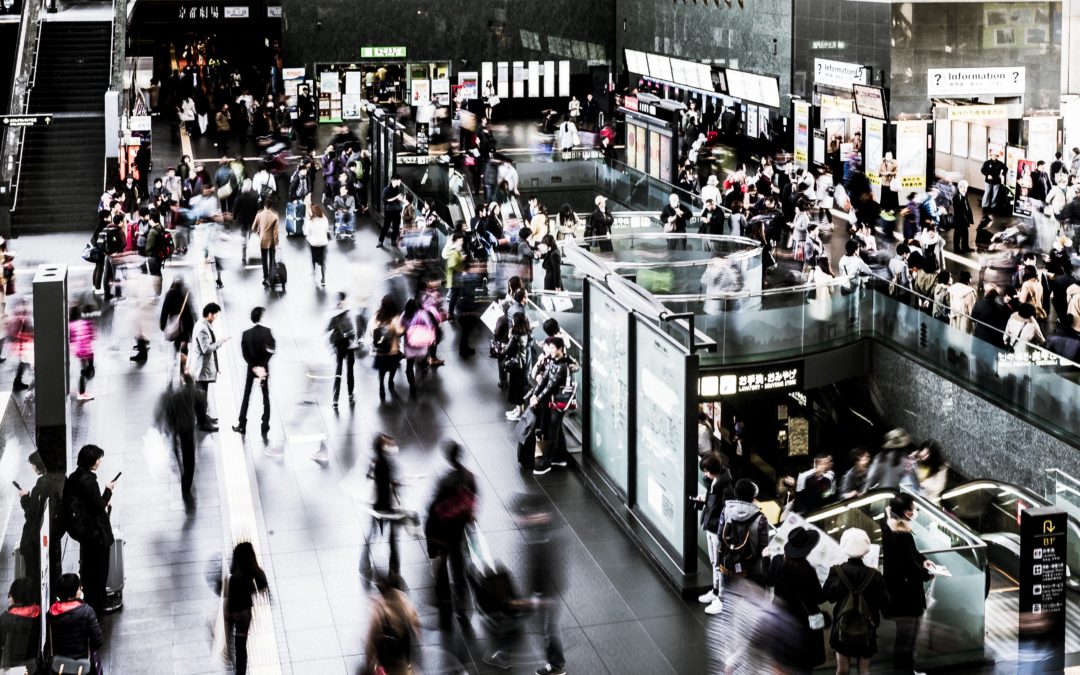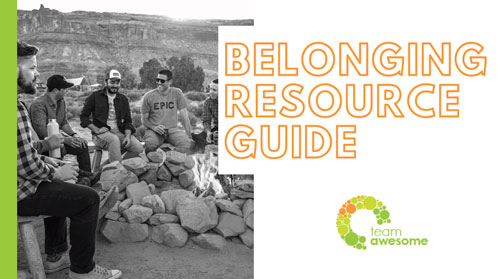I used to move a mile a minute. I had only one pace because I was always headed somewhere to do something. I once had a coworker race me to see if they could eat their lunch faster than me until she stopped and said, “I just can’t do it!” I asked, “Do what?” since I didn’t know I was on the clock. She said she couldn’t beat me at eating fast, even when she didn’t tell me she was racing me (cue embarrassment over eating like an ogre). I remember walking through the mall on the weekend and my husband (who is nearly a foot taller than me) asking, “Why are you walking so fast? I almost can’t keep up.” I had stuff to do, people.
“Why are you walking so fast?”
Over the years my days became so packed that I no longer had time for creative thinking, blank space, or frankly, time to appreciate the journey. Here are a few other absurd things that I did at work, in case any of these sound familiar:
- Drank eight ounces of coffee, and literally nothing else all day
- Forgot for three hours to go to the bathroom (frequently)
- Ate entire meals in the elevator traveling between floors
One of the changes that I have made in my life is to slow. down. I have created space in my day for productive time, creative time, and restorative time. And do you know what happened? I am more productive than I have ever been. A friend shared this week that she allowed herself some “blank space” and she had some amazing realizations about her goals on spending more time with her family. Allowing yourself the down time you need can fuel your productive time.
In any given week in the past between meetings and “have to’s” I estimate that I only had about six hours in the week to sit with myself and do any meaningful work (These six hours also reflected elevator meals and no bathroom breaks). If I could get my work done in six hours surrounded by meetings and conference calls, I could get it done in the same time surrounded by intentionally planned time. So now, I choose to plan my calendar with blocks of project time, restorative walk breaks or workouts, or even an hour where I get to read or research something that interests me.
Here are some tips to creating more black space on your calendar:
- Block the time off: Use calendar invites to block the time you need for you so others don’t see it as available for the taking.
- Create a goal (Google Calendars): If you use Google calendars, create a goal for yourself and set your own frequency and length of time, and your calendar automatically keeps that block but moves it around if you place a conflict over it.
- Remove the clutter: Question everything on your calendar as to, “Do I need to attend this?” or “Is this meeting necessary?” No need to sit in meetings where half of it is deciding the agenda that could have been prepared in advance.
- Use micro-spaces of time wisely: I often would have meetings where the other person was a few minutes late. Just enough time to read a few HBR blogs and news articles, I say.
- Pick one thing to say “no”: Find one thing that you can just get rid of. Just one. Then, make sure you spend that time on what you really want to do. (Make sure you don’t waste it checking email or trolling Twitter, you won’t feel that sense of accomplishment you are looking for.)
Easier said than done, right? Try one new thing, or a few. Give behavior changes time to sink in, and be “listening” for the change in how you feel about how you are spending your time. Maybe you can even eat that banana while going for a walk outside instead of in the elevator.
About the author: Katie Rasoul is the Chief Awesome Officer for Team Awesome, a coaching and consulting firm. Find out more by visiting www.teamawesomecoaching.com or sign up for our mailing list for awesomeness coming straight to your inbox. Follow Team Awesome on Facebook and Twitter.



Recent Comments